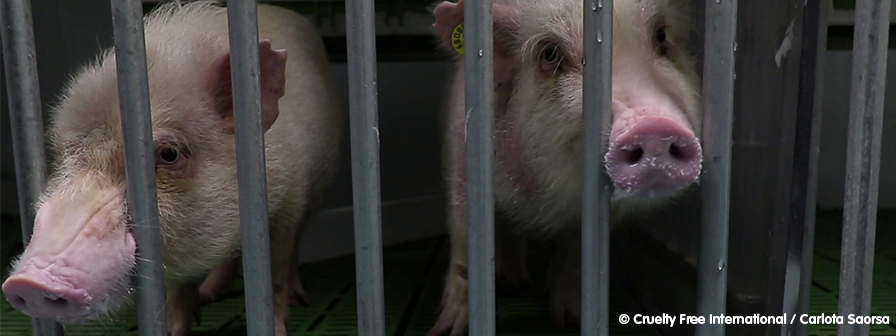European Medicines Agency expresses need to move away from animal testing
New Agency initiative aims to identify obstacles to using non-animal methods

The European Medicines Agency (EMA) recently published a list of its “Regulatory Science Research Needs”, which include “identifying the obstacles to moving from animal models to non-animal alternatives” to “reduce the number of experimental animals used”. We welcome this initiative and applaud the EMA for recognising the importance of moving away from crude and cruel tests on animals.
Despite advances in non-animal test methods, there were over 1.9 million uses of animals in tests conducted to meet the requirements of EU medicines and medical devices legislation in the EU and Norway in 2018. In these tests, animals are forced to eat or inhale substances, or have them applied to their skin or injected into their bodies. Animals can suffer from vomiting, seizures, internal bleeding, organ damage and even death. Those who survive are killed at the end of the experiment and their bodies dissected.
The list of around one hundred topics was devised to address gaps in regulatory science that hinder medicine development and evaluation, and, ultimately, access to innovative medicines for those who need them. We are pleased that the EMA recognises the link between increased use of non-animal methods and better availability of safe, affordable medicines. Currently, 92% of potential drugs fail in human clinical trials despite tests on animals demonstrating that they are safe. Non-animal methods have the potential to transform drug development by being more reliable and predictive of human reactions than tests on animals.
The EMA’s new initiative comes from its “Regulatory Science Strategy to 2025”, which – following contributions from Cruelty Free Europe scientists – incorporated recommendations to promote the use and development of non-animal methods and reduce and replace animals in medicines testing. Cruelty Free Europe has written to the Agency to praise the initiative and express our interest in helping with this transition.
Our Director of Science and Regulatory Affairs, Dr Katy Taylor, said: “We are delighted to see the good work coming from the EMA, in acknowledging the importance of non-animal methods to securing safe and effective medicines for those who need them and promoting the transition away from animal tests. We will continue to work with the Agency to help deliver its aims.”
If you’re an EU national, you can help by signing and sharing our European Citizens’ Initiative to End Animal Testing.
